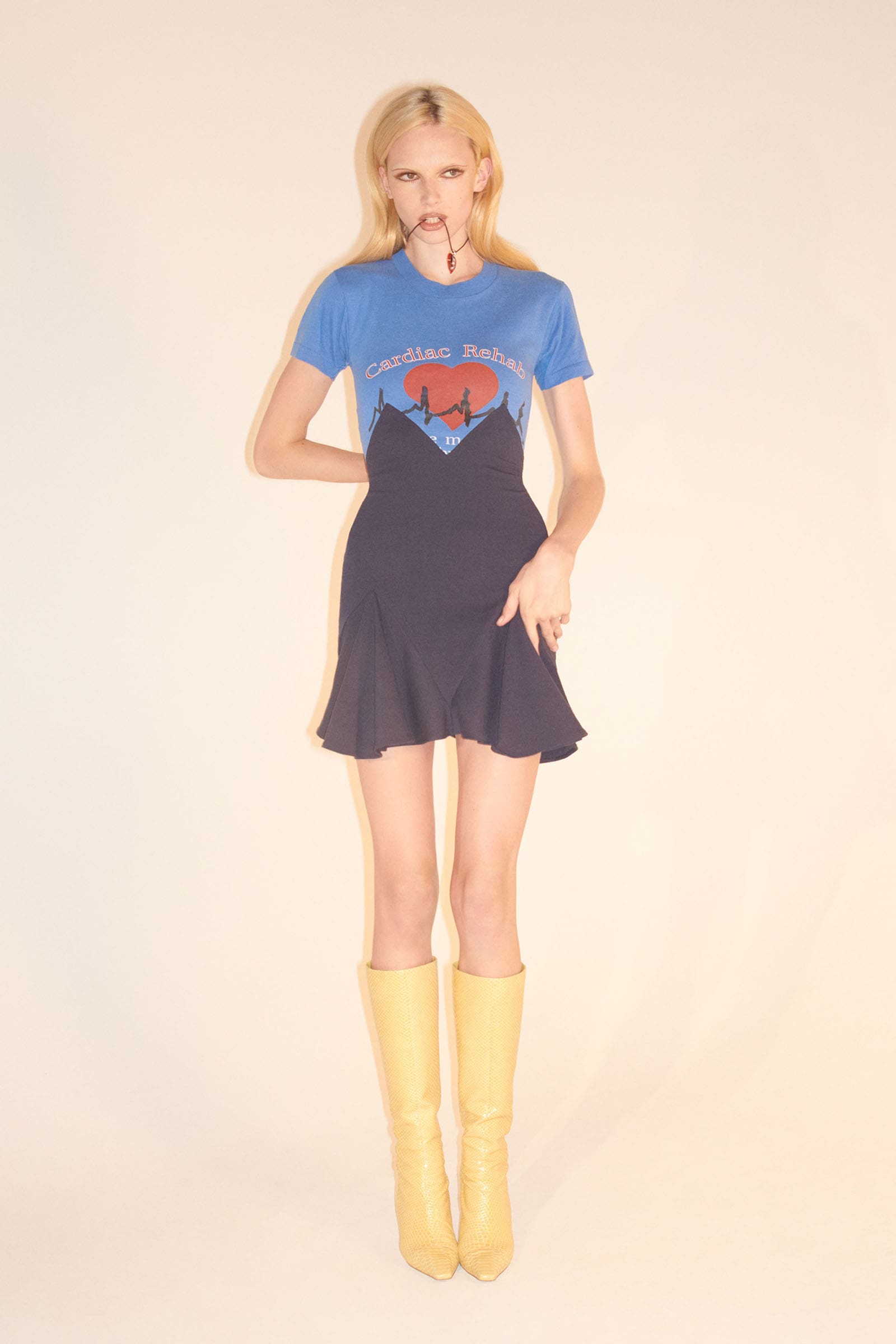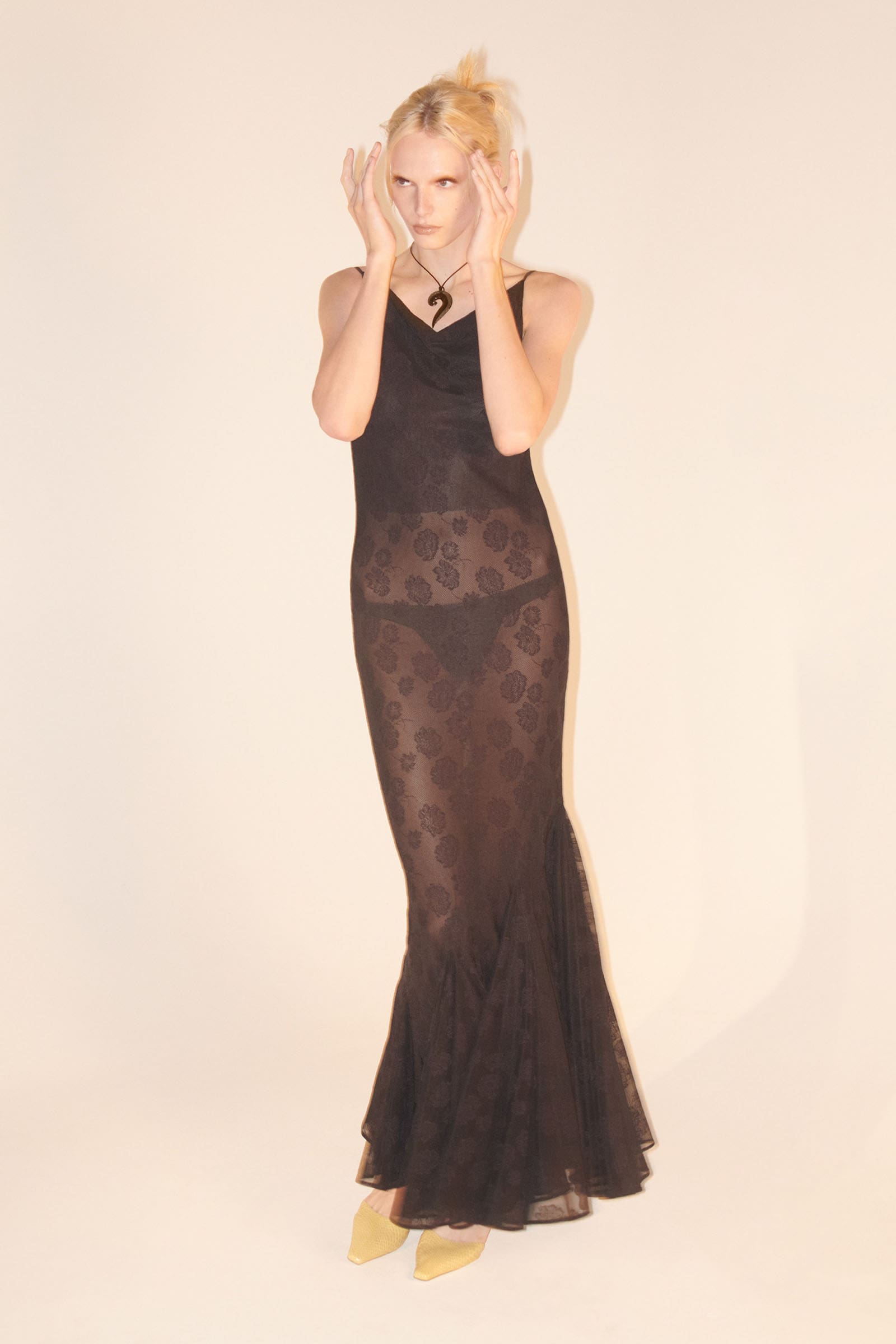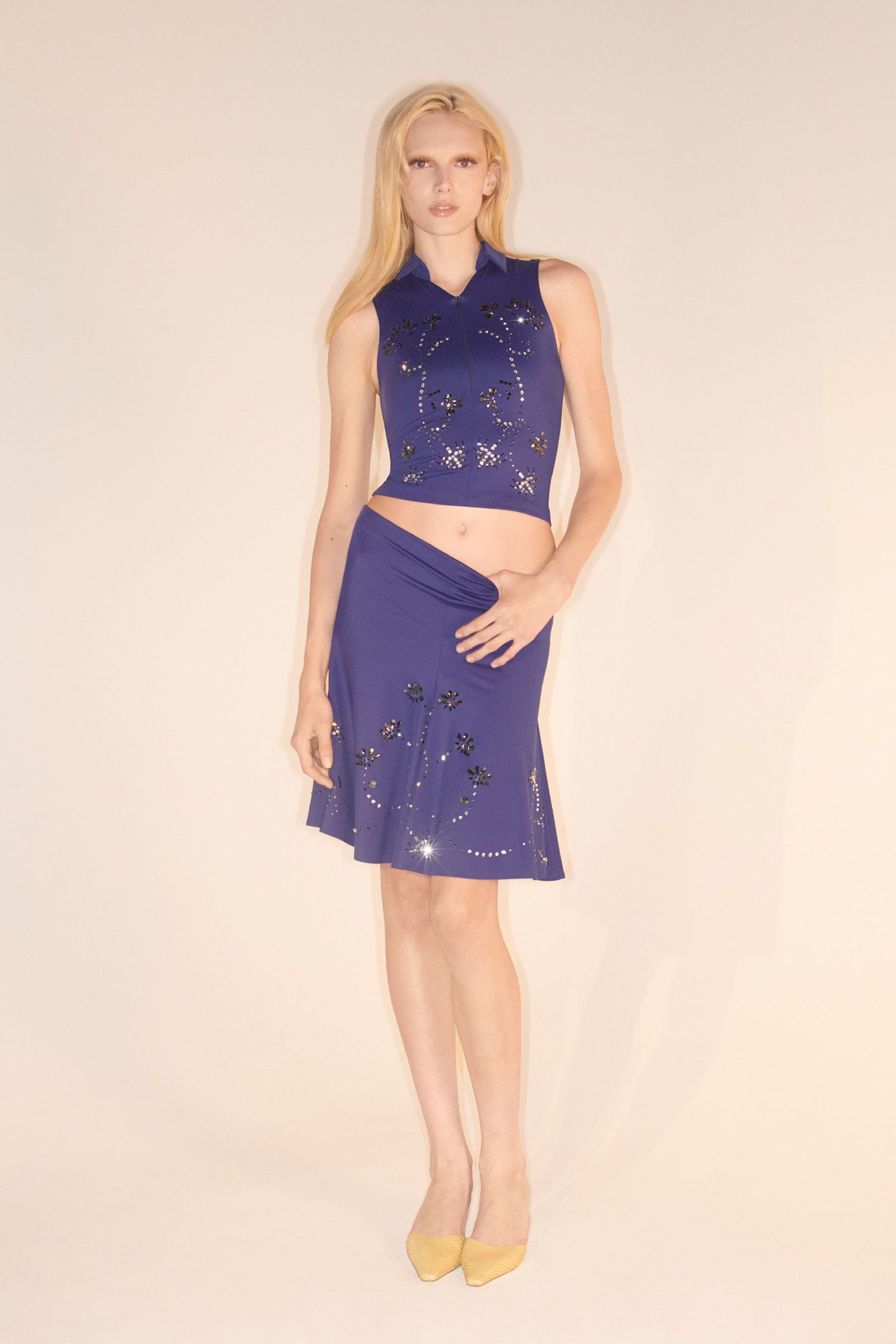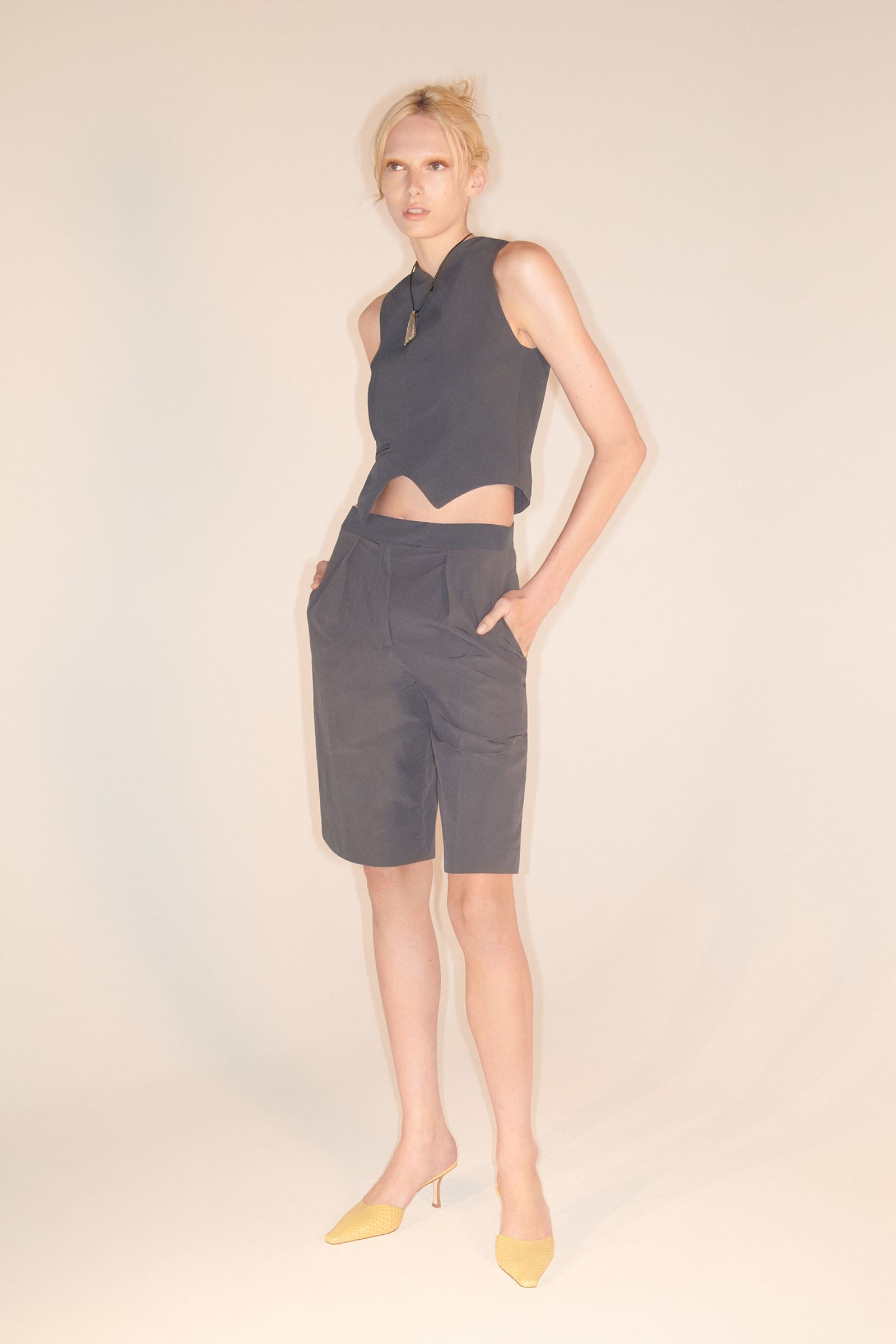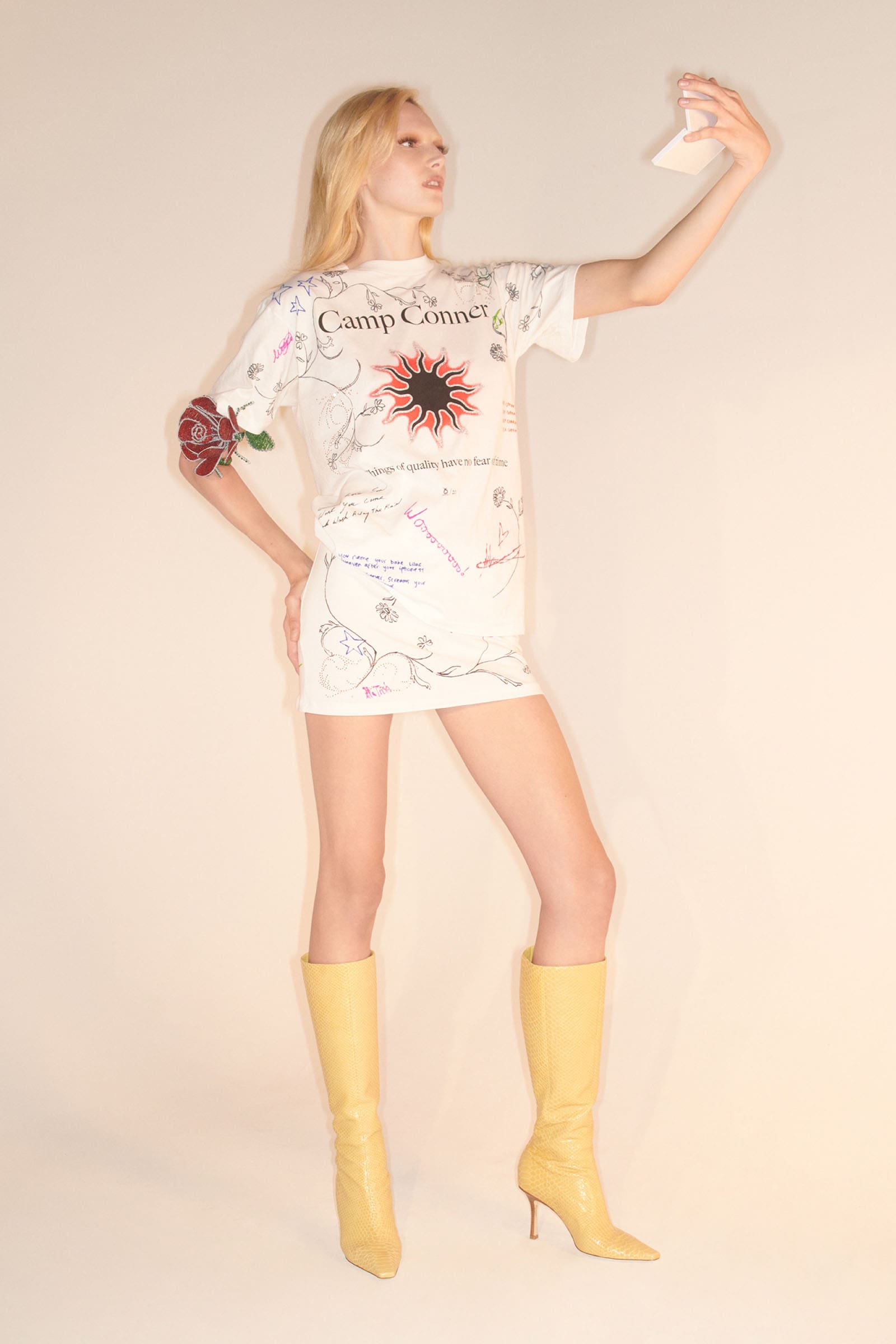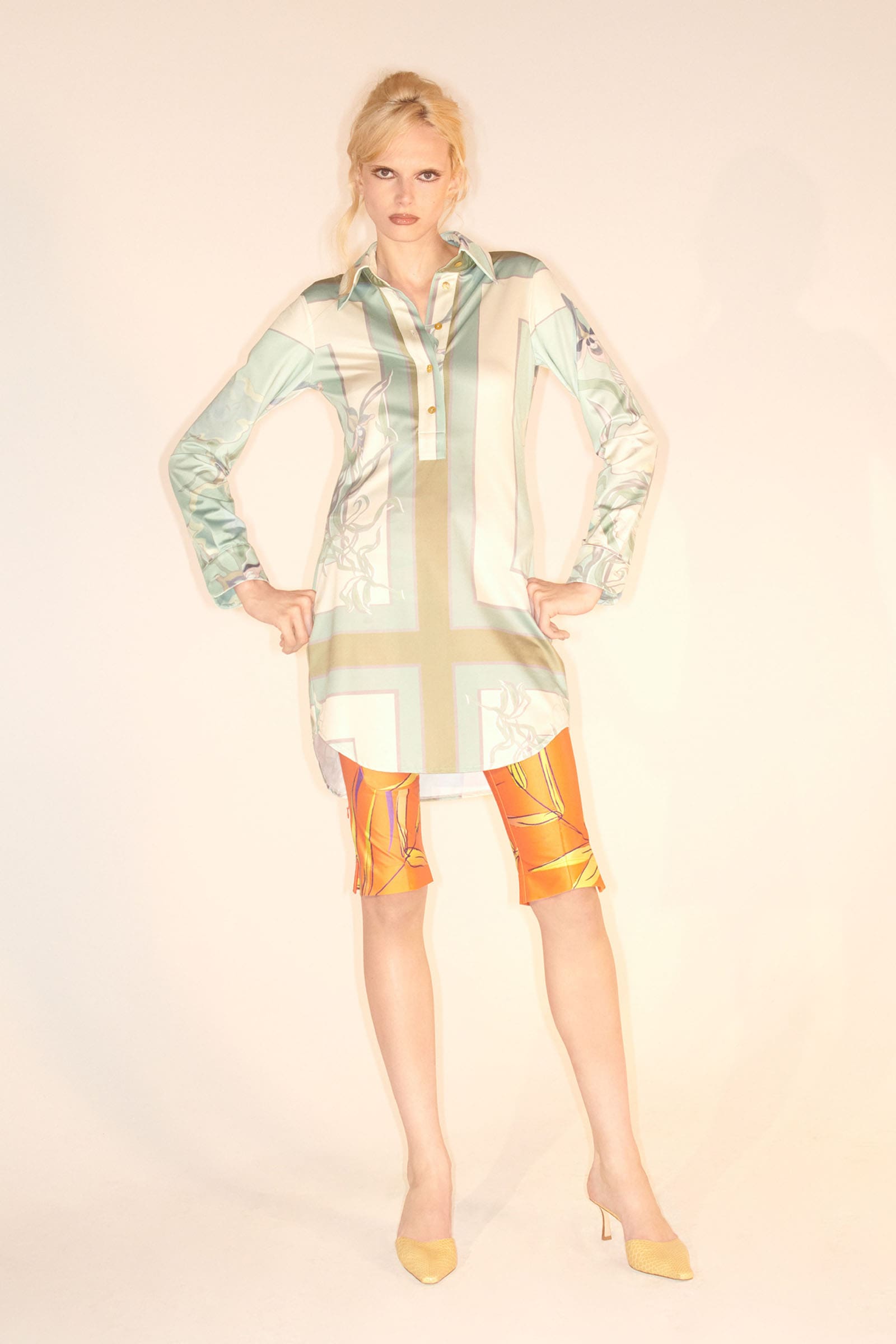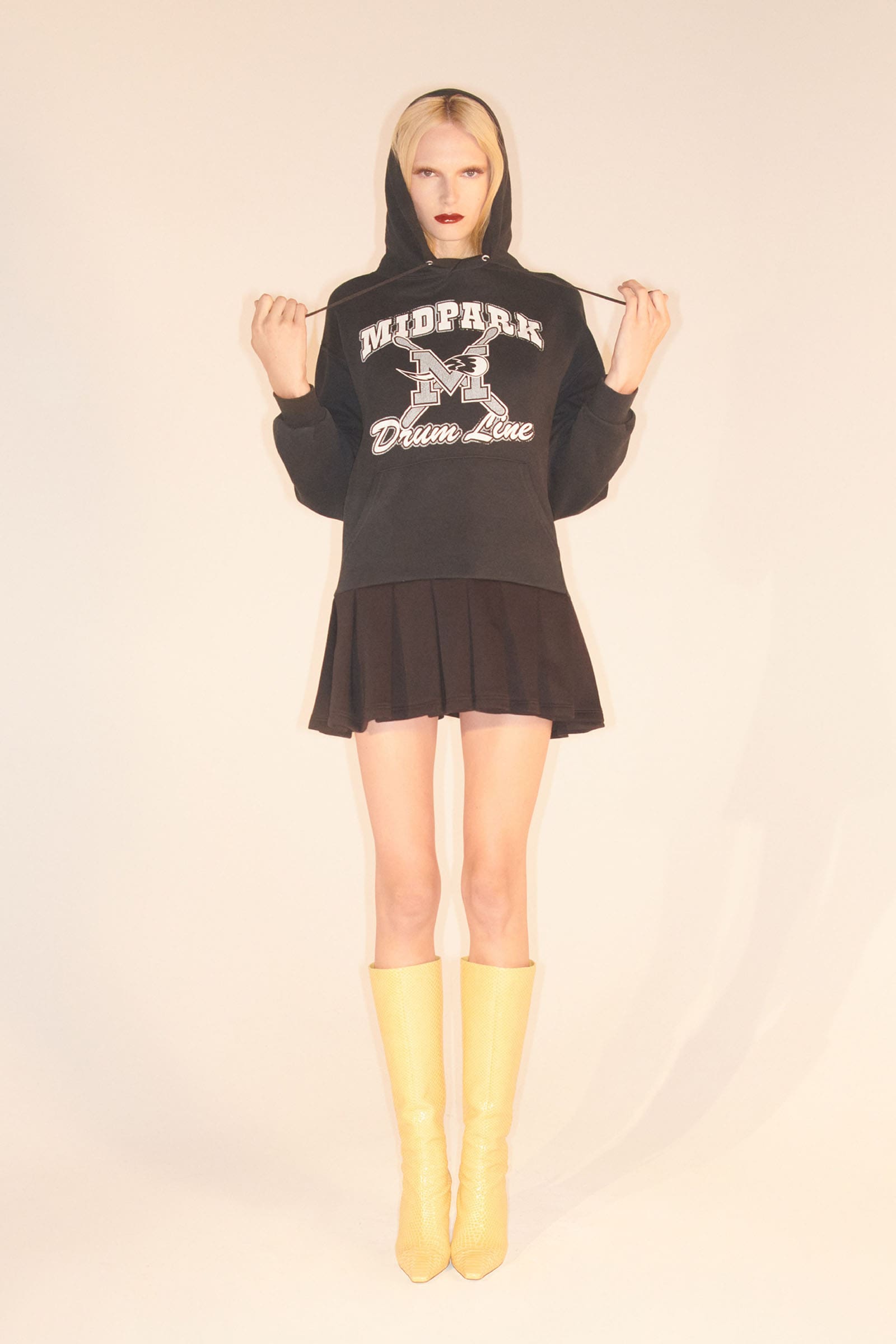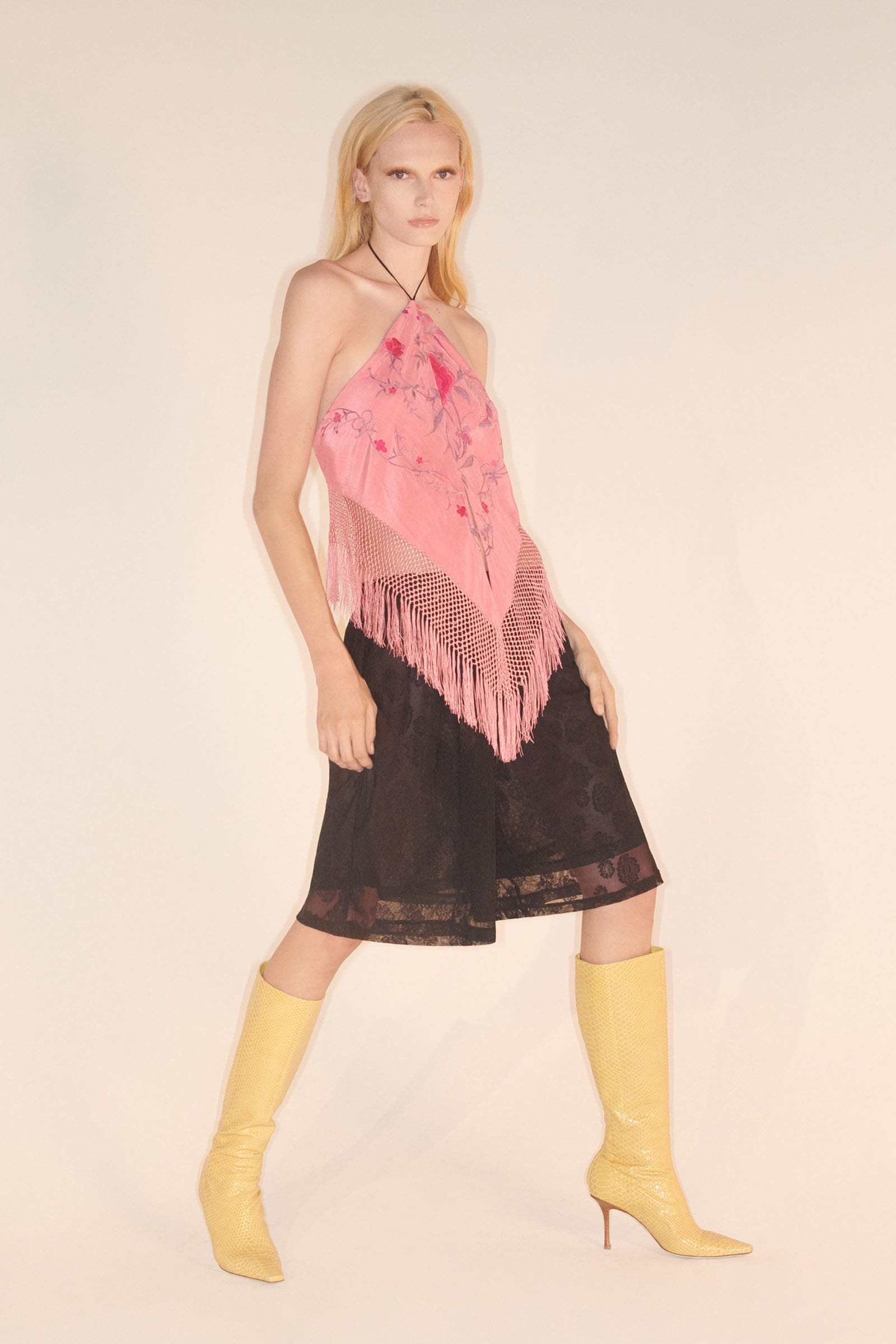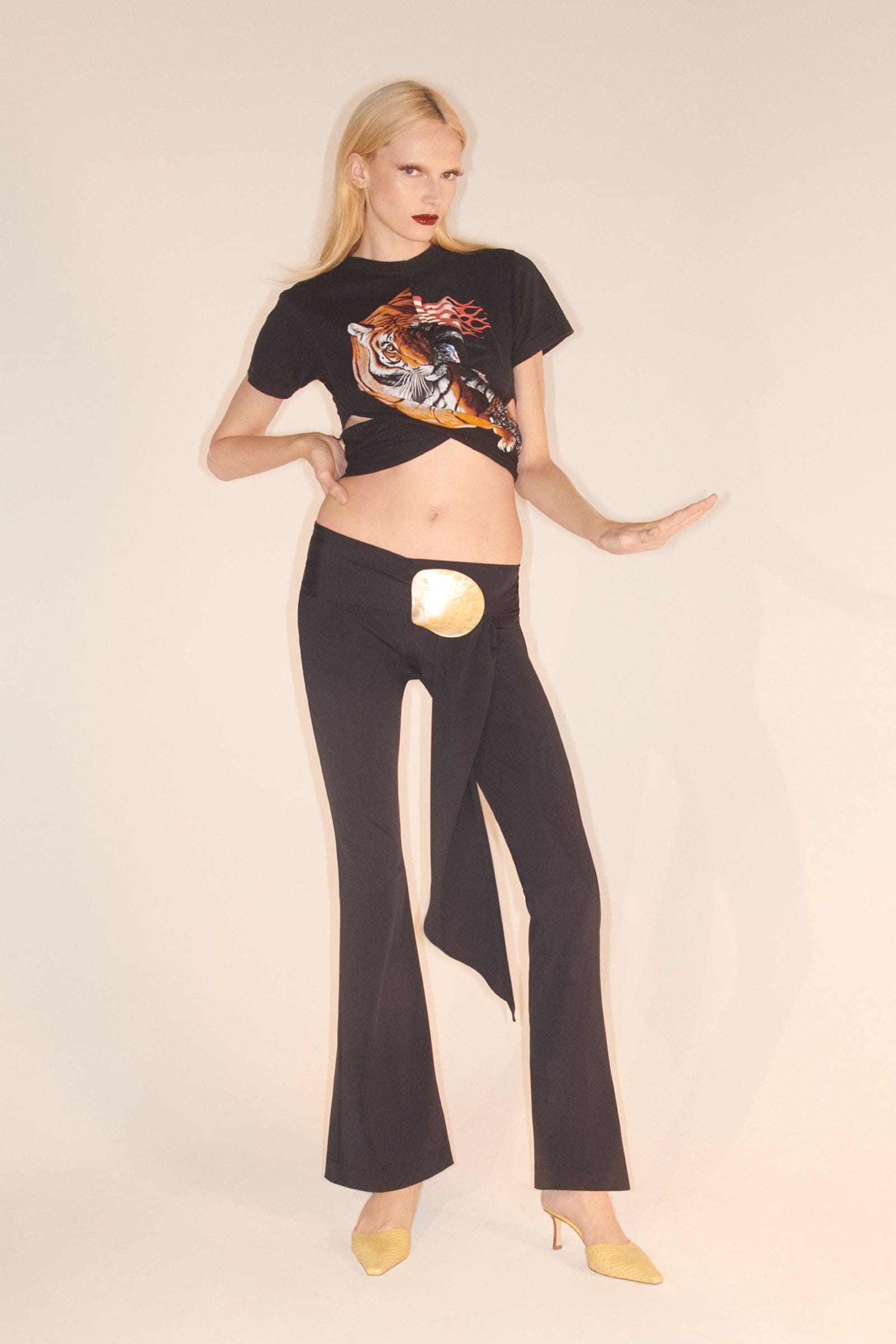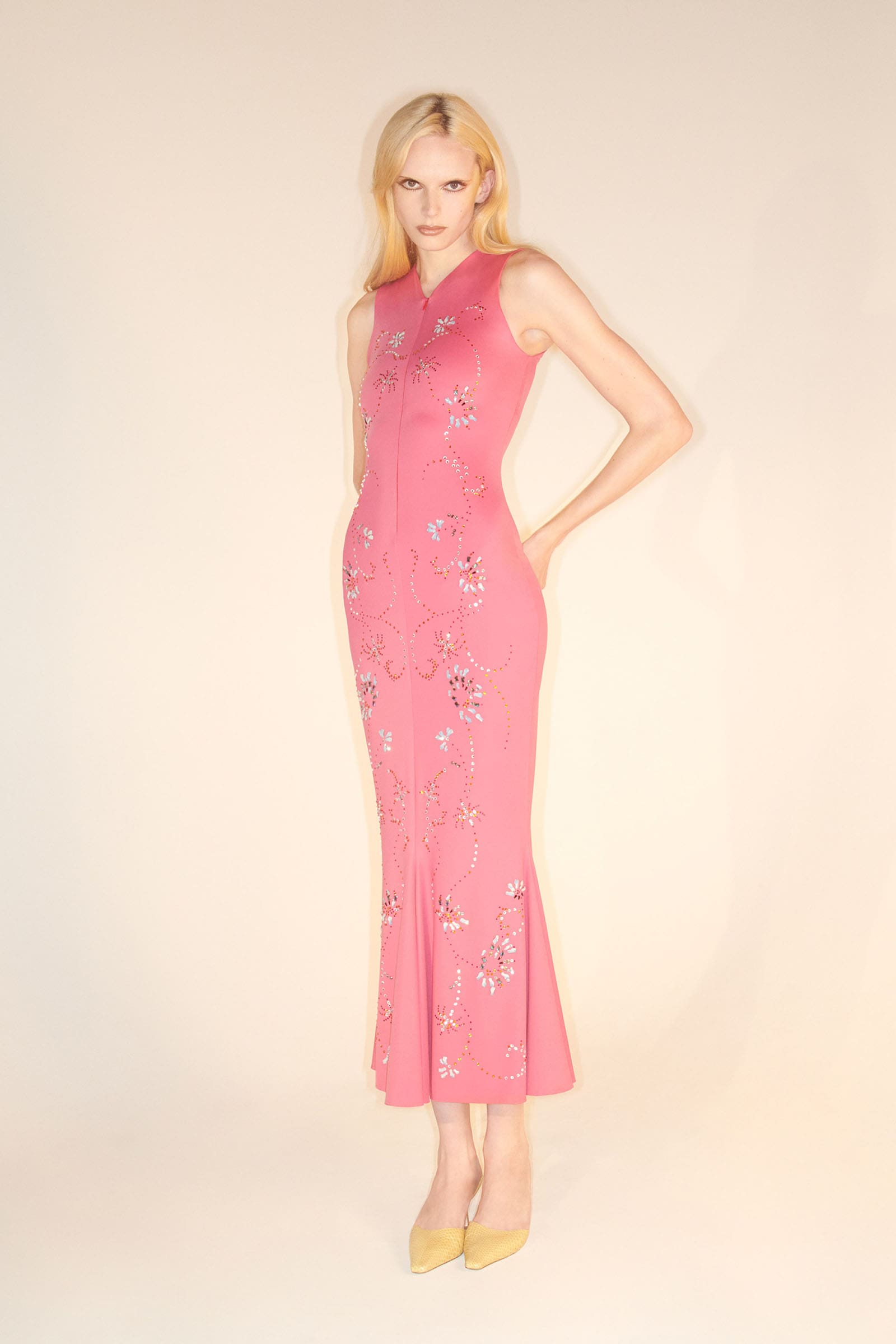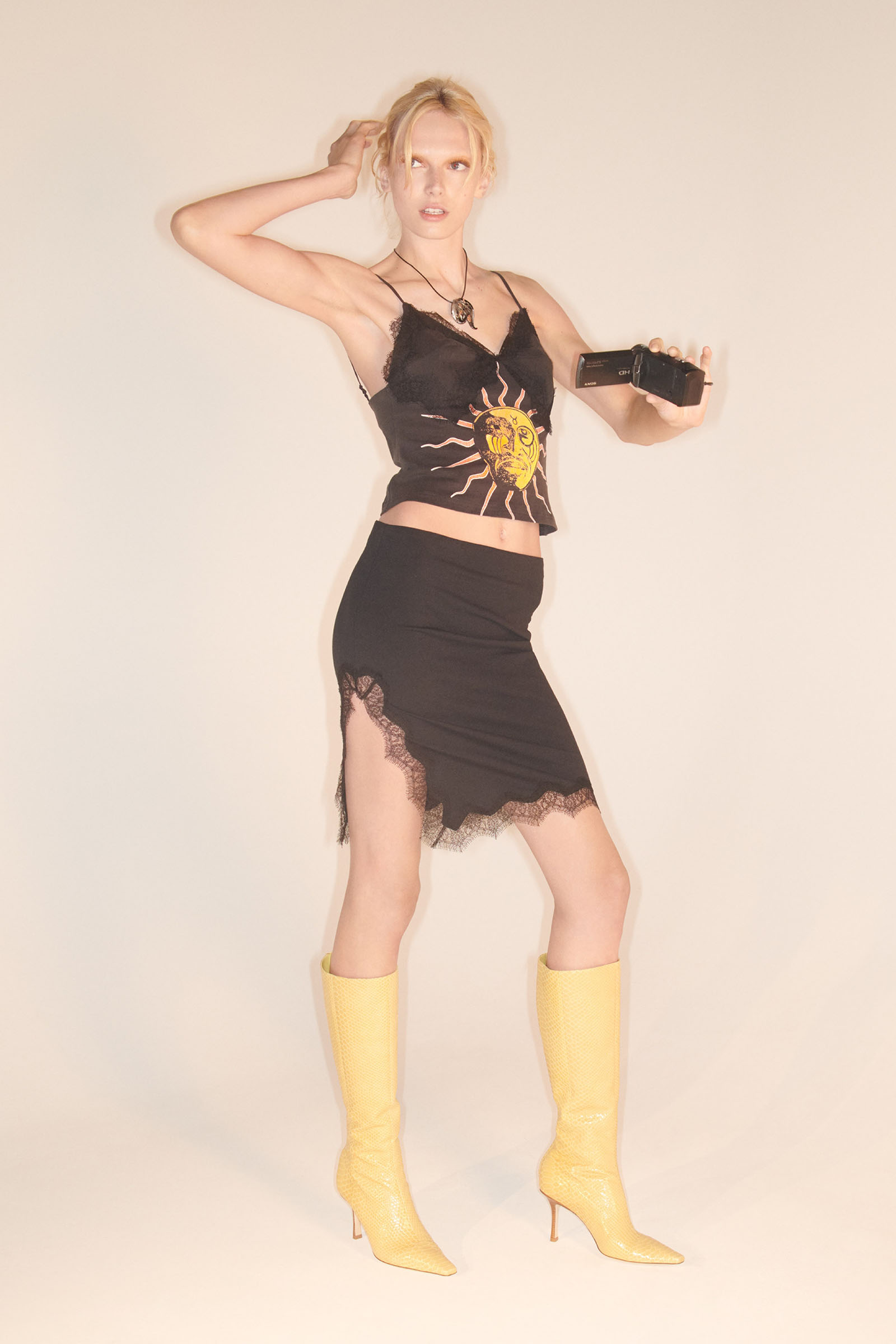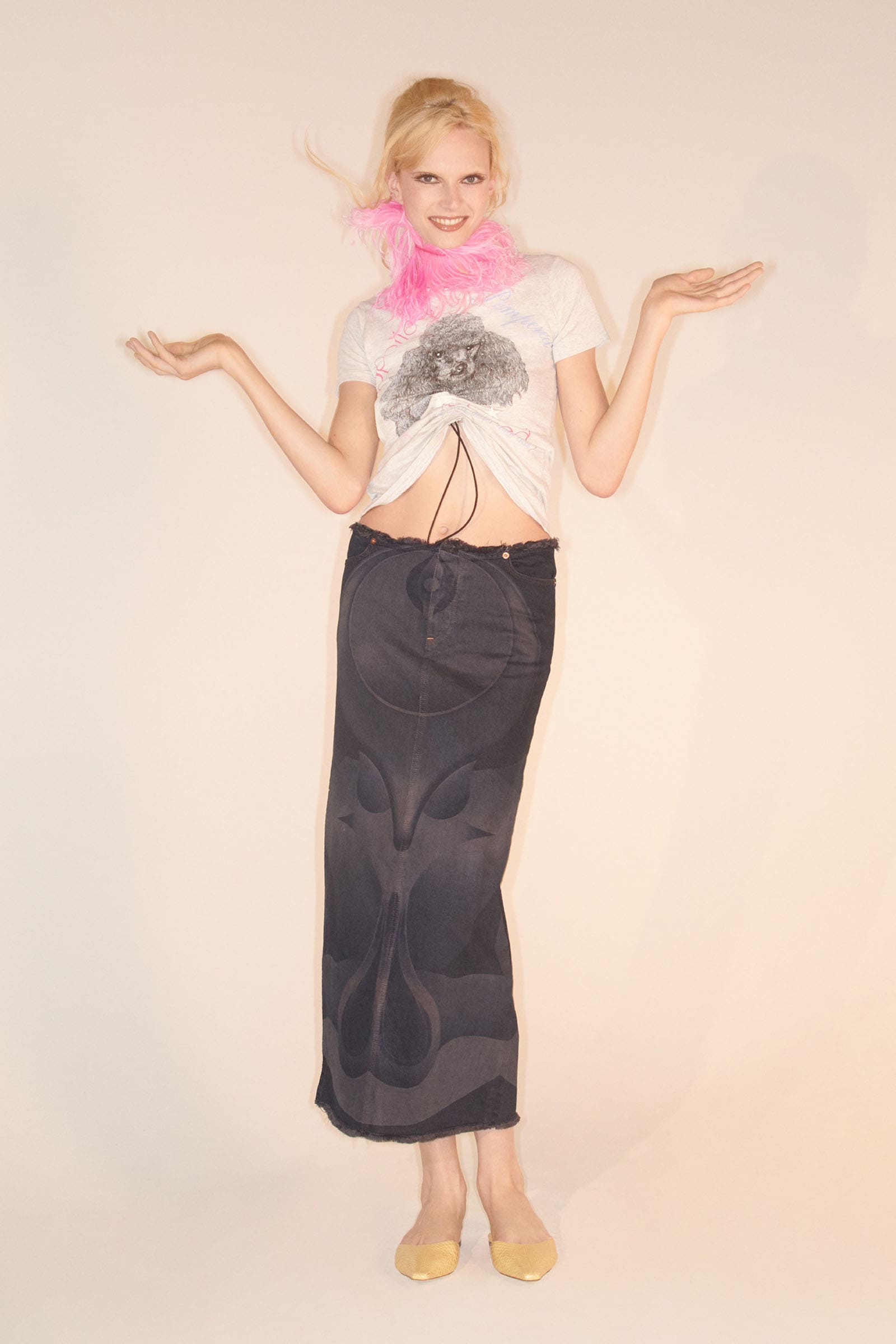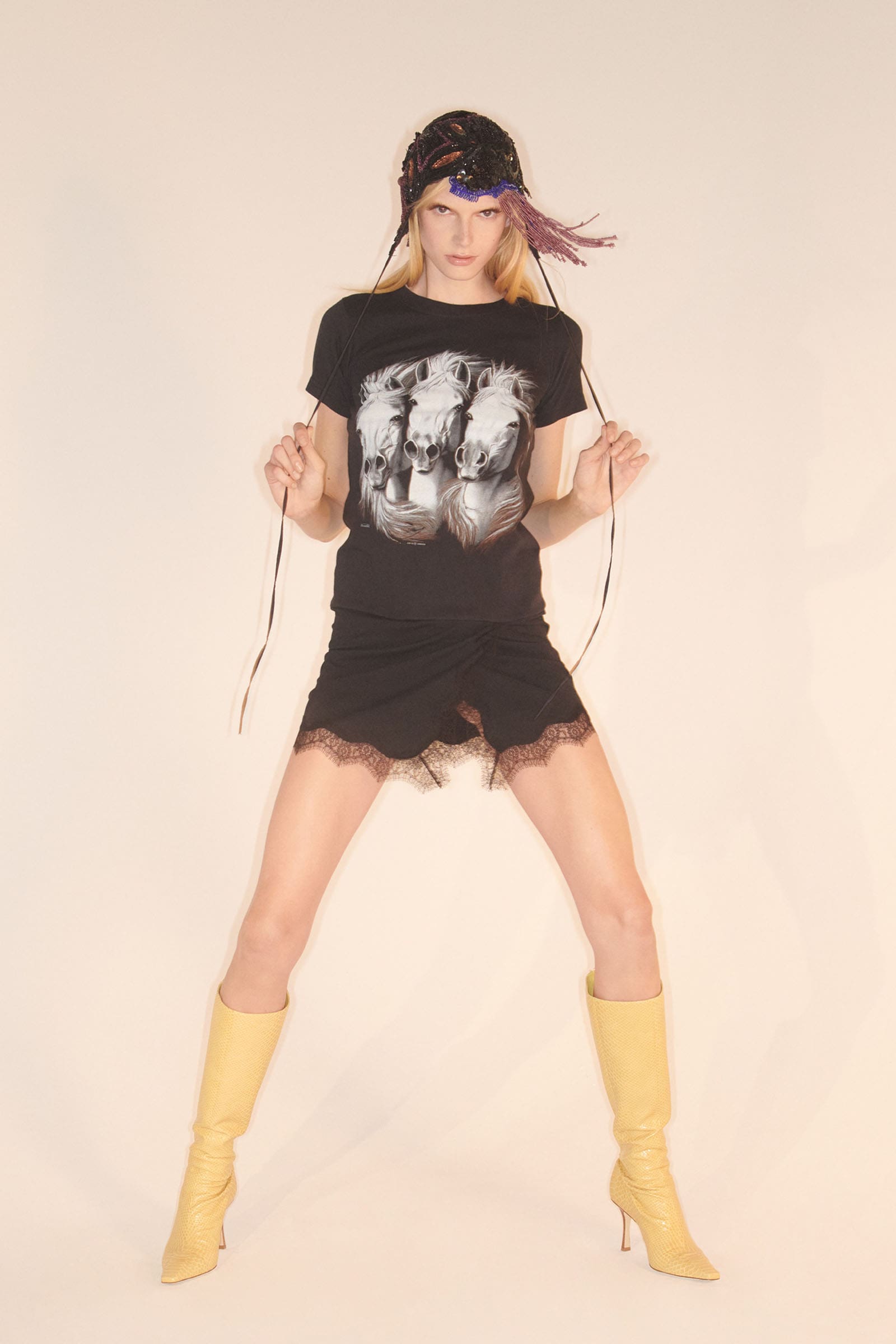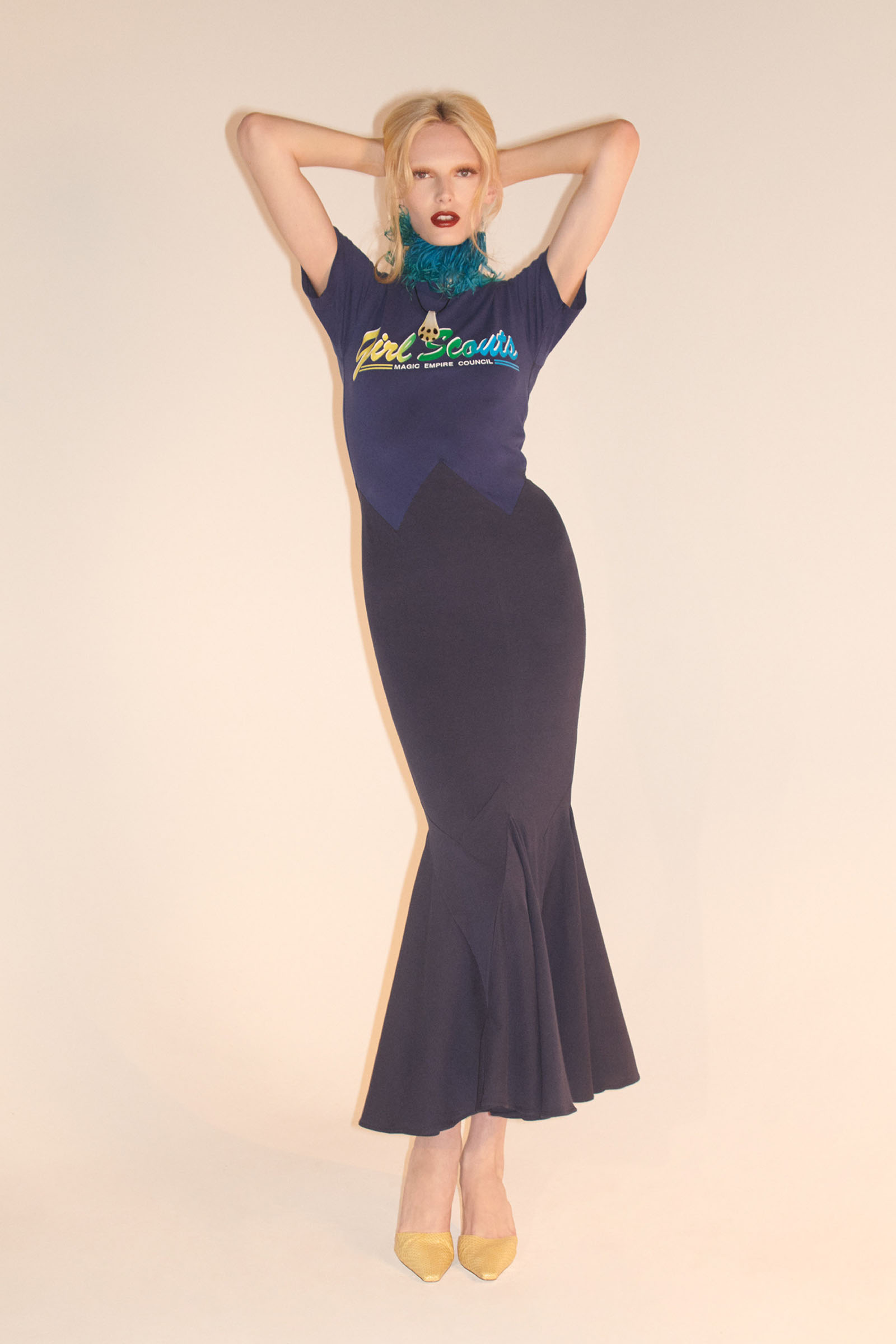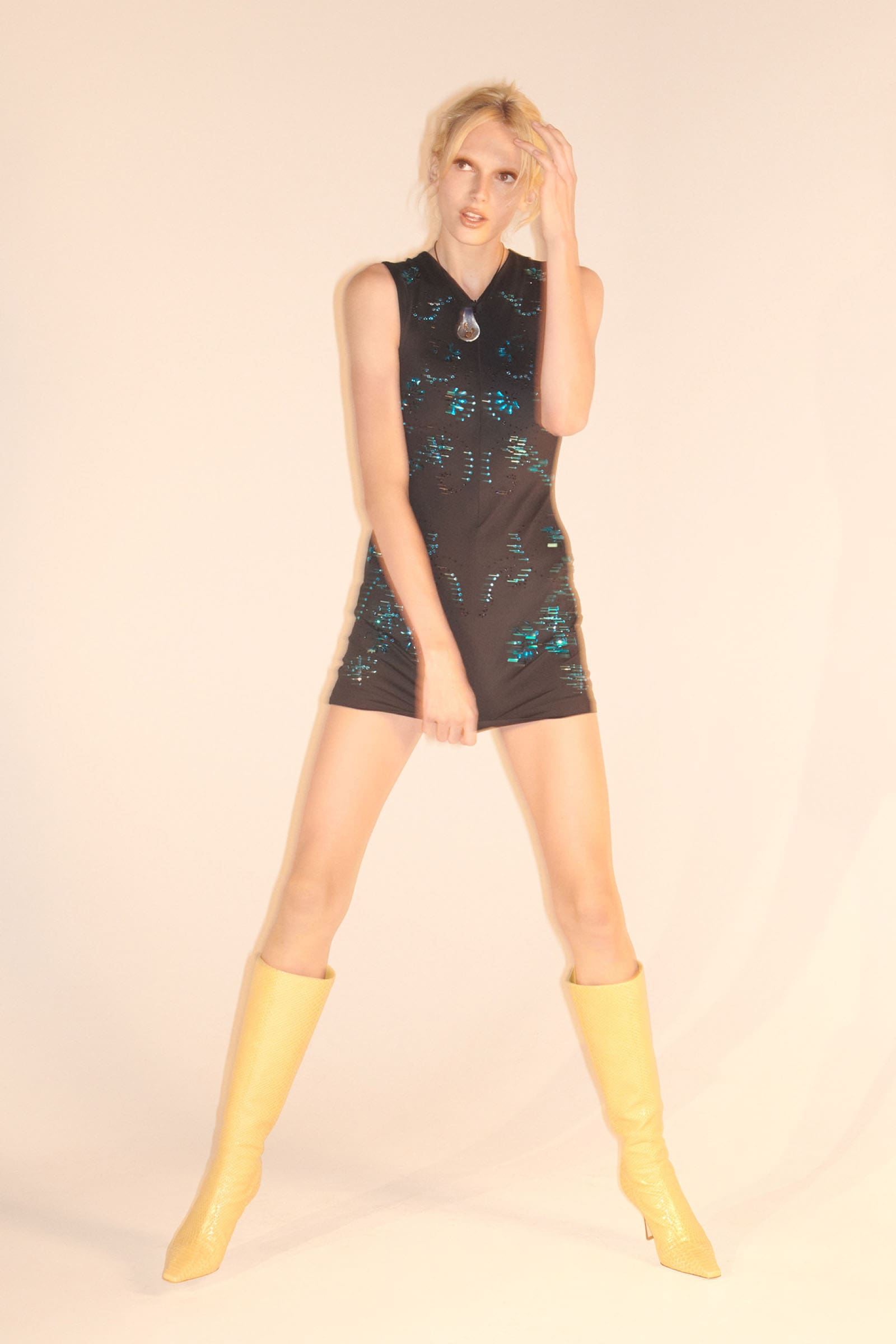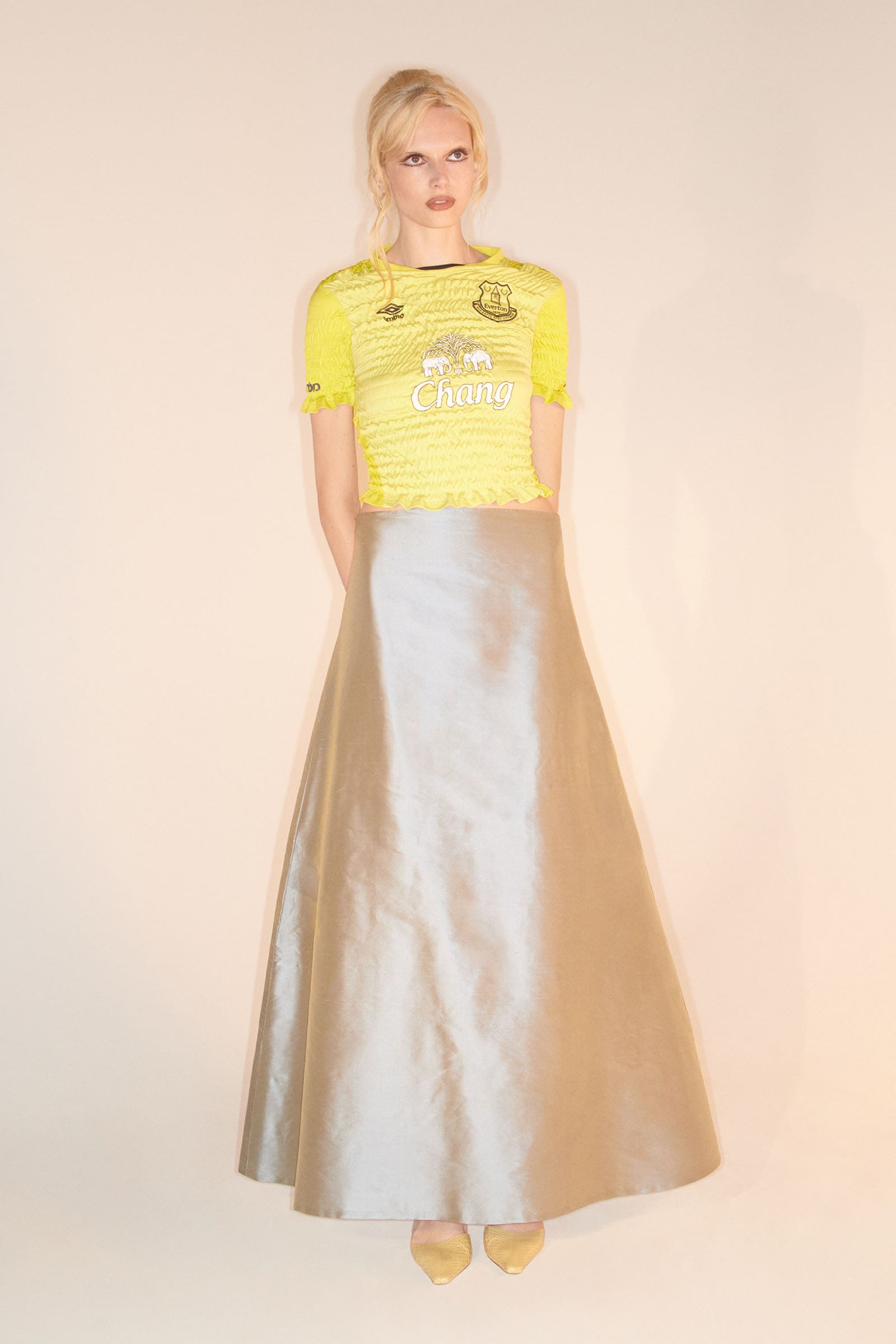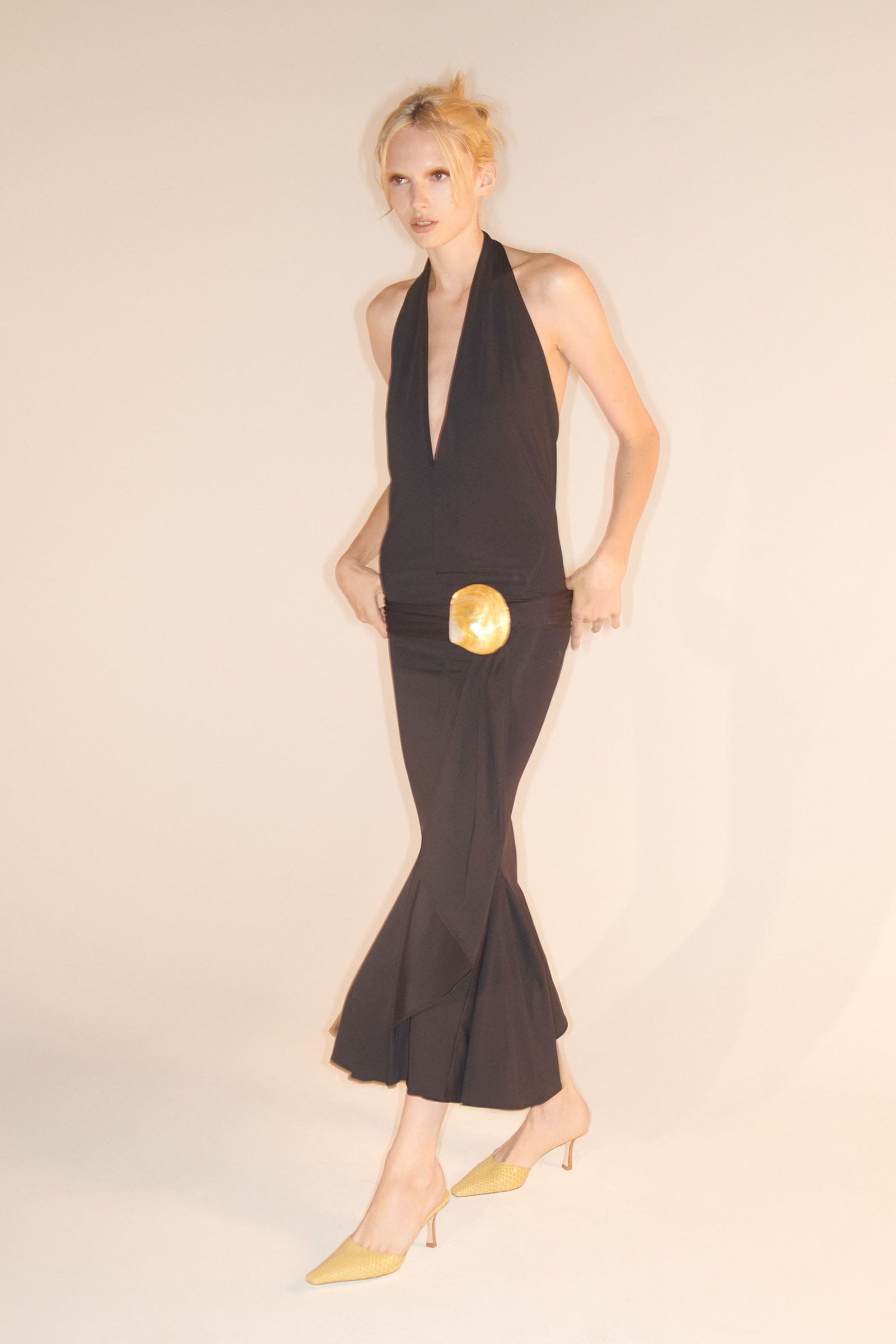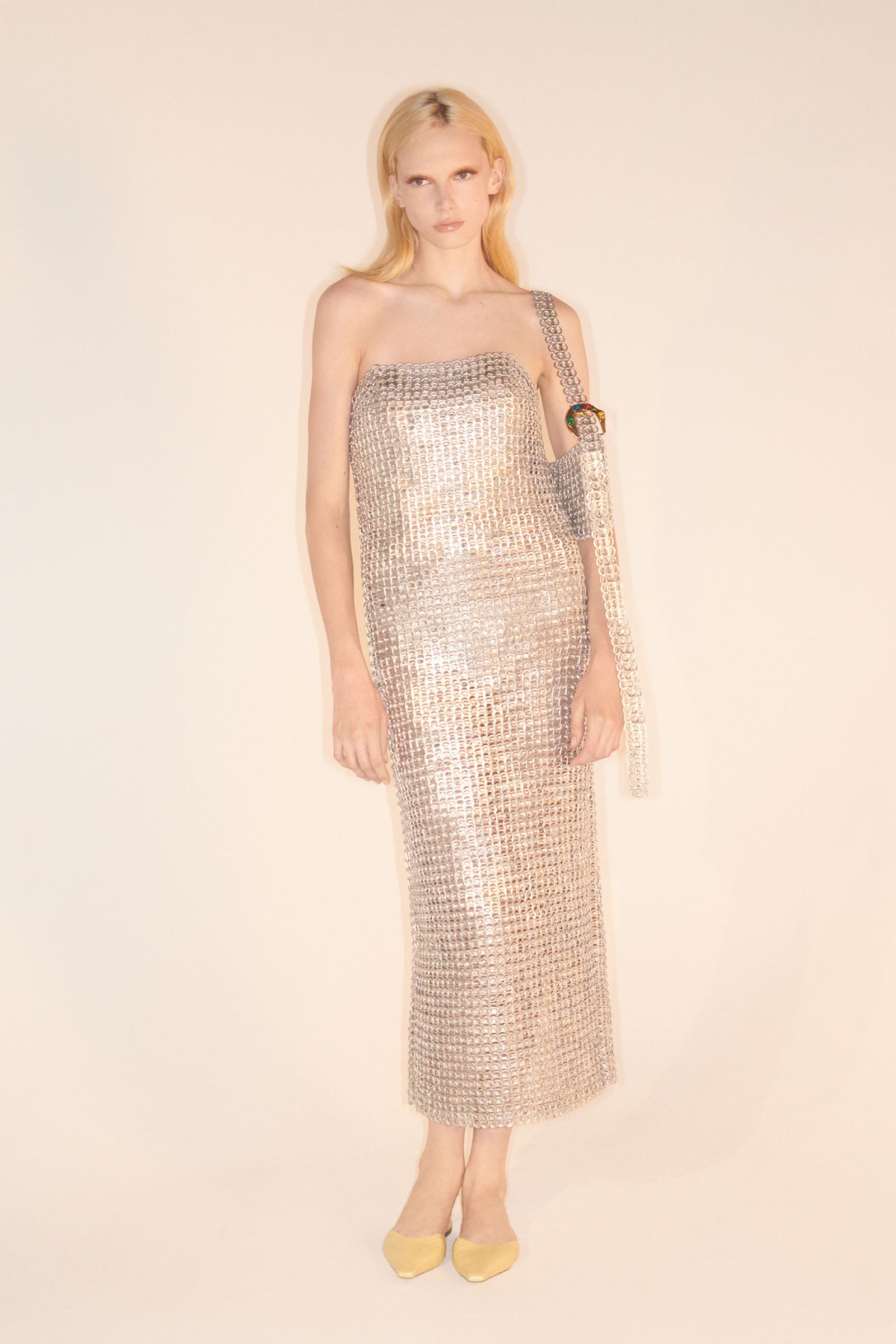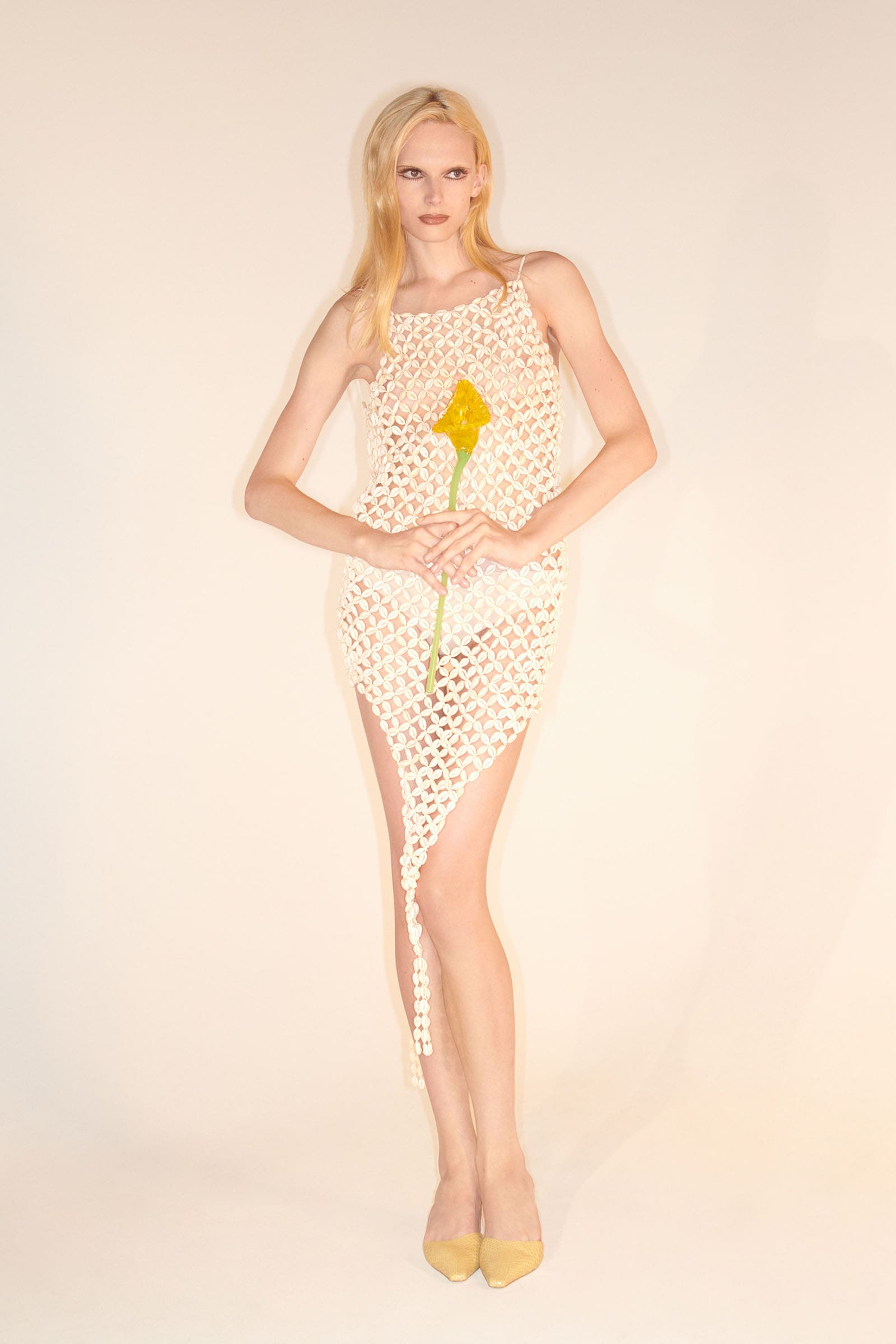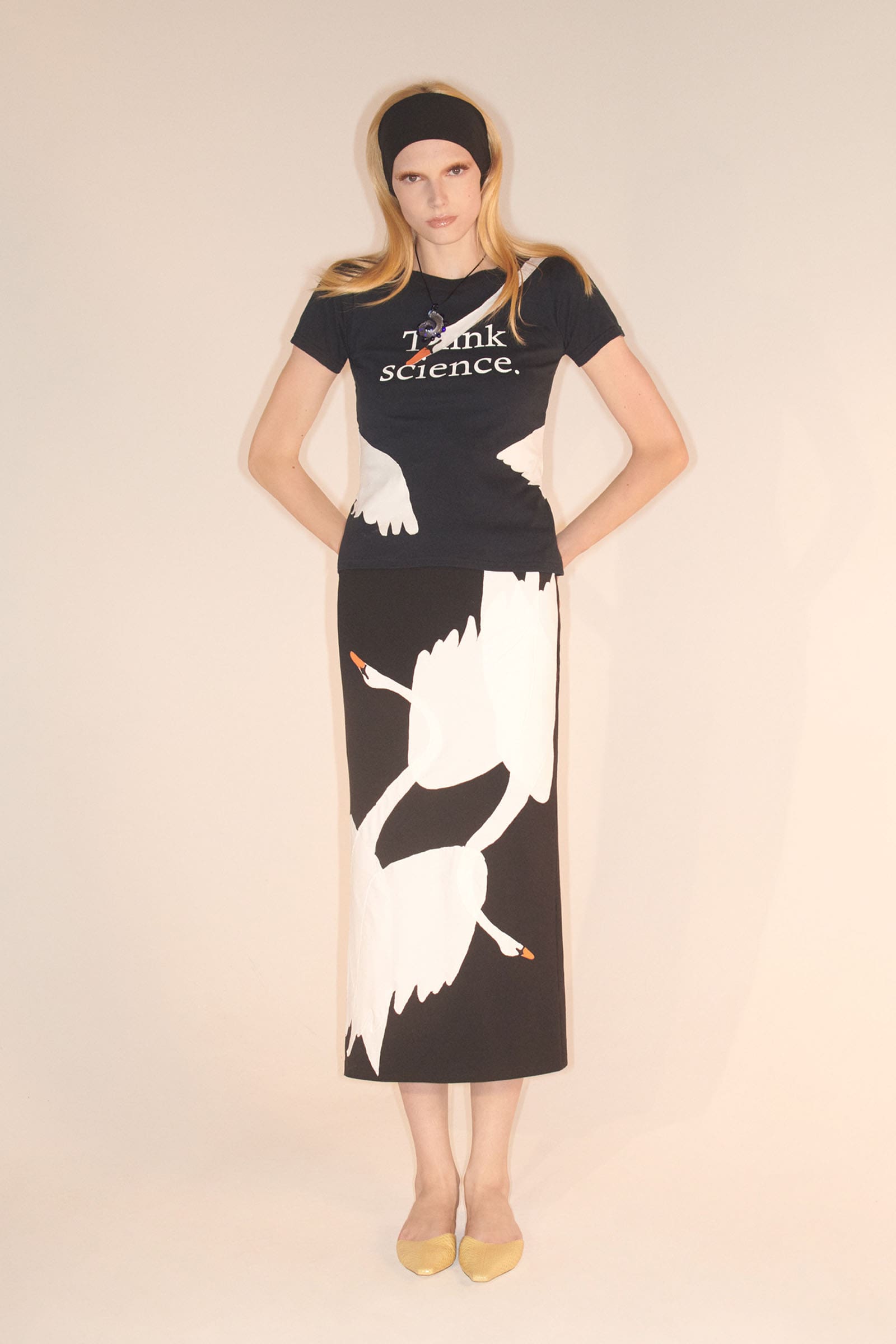
As a designer born on the cusp of the millennial-Gen Z divide, Conner Ives has an acute understanding of what makes the internet tick. So it tracks that the starting point for his latest collection was a TikTok video he stumbled across a few months ago of a girl live-blogging her experience queuing for a fashion sample sale in New York as smoke from the Canadian wildfires bathed the city in an ominous orange glow. “As much as it felt like the end of days, there was also a dark humor to it,” Ives said at a preview. “It’s the beginning of the end of the world, and we’re waiting in line at a sample sale.”
Thus, Ives decided to title the collection “Late Capitalism”—though he was keen to reiterate this wasn’t intended as something provocative, but an invitation to talk more openly about the economic realities of what keeps the fashion world moving. “It’s a subject that makes me uncomfortable, which made me feel like it was something worth talking about,” he said. Ives is one of a generation of designers for whom sustainability is something of a given, meaning he hasn’t telegraphed his eco-credentials all that loudly in the past (although with his signature approach of lending deadstock and upcycled vintage clothes a glamorous new life, you didn’t have to dig very deep to notice it). But he now feels a greater urgency to share the various methods by which he’s carved out his own, more responsible lane.
“I think part of me didn’t want to get up on my soapbox, as I wasn’t sure if anyone really cared,” Ives said, noting that in his few years of doing production at scale, he’s repurposed nearly 15,000 T-shirts destined for scrap yards, while a new partnership with Depop will see him use the platform to source bulk raw material for production. And he’s open to talking about the fact that the system still isn’t perfect. Sure, he’s made a firm commitment to only staging a runway show once a year, but he still needs to produce lookbooks in between to allow him to sell year-round and keep his business afloat. “I’m very aware there’s an irony to the ‘Late Capitalism’ collection being an answer to getting more items into stores,” he acknowledged.
So, then, to the clothes. In his signature spirit of character-driven styling, Ives’s lookbook—photographed by Johnny Dufort, and starring the TikTok-favorite model of the moment Alex Consani—began with one of his “archetypes,” a T-shirt and skirt decorated with a swan motif as an ode to Natalie Portman’s doomed ballerina in Black Swan. Once again, there was plenty of fun to be had identifying the various figures he was paying homage to, from Charlotte York to Carmela Soprano to the English soccer WAGs Coleen Rooney and Rebekah Vardy in a shirred sports tee. (Another favorite was the “woo!” girl—in Ives’s words, “it’s her birthday, she’s having drinks with the girls, and she’s gonna scream ‘woo!’ intermittently throughout the entire evening.”)
Ives also continued his journey of expanding out from the spliced T-shirt dresses that made his name as a fashion editor favorite, continuing to develop his tailoring and elevate his eveningwear offering. Highlights included a series of T-shirt dresses with 1930s-inspired trumpet skirts made of recycled jersey, a sheer bias-cut dress cut from baseball jersey material, and a swishy black halter gown with a mother-of-pearl shell as a belt buckle. But perhaps the most striking looks came at the end, in the form of a dazzlingly intricate dress strung together from 9,000 soda can tabs, and a slip made from cowrie shells strung together in a bias lattice (cowrie shells being one of the earliest forms of currency in human history, Ives pointed out, in another nod to the collection’s meditations on commerce).
Given the audacious spirit of fun that radiates from Conner Ives’s clothes, the craftsmanship of these pieces served as a welcome reminder that he’s one of the most thoughtful and considered young designers working in London right now. “As fun as it is to have the humor in there, I wanted to make a line sheet that I was really proud of,” he said. “It might sound like an obvious or trite thing to say, but it always has to go back to the clothes.”
This article was originally published on Vogue Runway.
